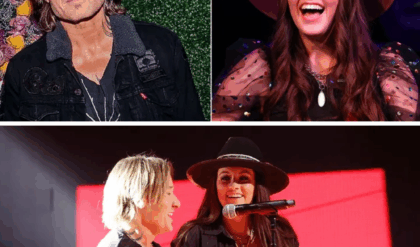Jodie Foster, a cinematic titan whose career spans over five decades, has never been one to chase the spotlight. In a revealing interview with Vanity Fair on November 20, 2024, the two-time Academy Award winner made a striking statement: “I don’t think fame is a good thing.” For an actress whose performances in The Silence of the Lambs, Taxi Driver, and Nyad have earned her global acclaim, this perspective is both surprising and profoundly insightful. Foster’s candid reflection on fame, paired with her remarkable journey from child star to Hollywood icon, offers a rare glimpse into the mind of a woman who has navigated the industry’s highs and lows with grace and authenticity.
A Child in the Spotlight
Born Alicia Christian Foster on November 19, 1962, in Los Angeles, California, Foster’s entry into acting was almost incidental. At age three, she landed a Coppertone suntan lotion commercial, thanks to her mother Brandy’s industry connections. “It wasn’t about fame or ambition,” Foster recalled in the Vanity Fair interview. “My mom saw it as a practical way to support the family.” By six, she was a regular on television, appearing in shows like Gunsmoke and Mayberry R.F.D., her precocious talent and ability to memorize lines setting her apart.
Yet, even as her career gained momentum, Foster felt uneasy about the attention. “I was shy, and the idea of being watched by millions felt unnatural,” she said. Her discomfort grew with her breakout role at 12 in Martin Scorsese’s Taxi Driver (1976), where she played Iris, a child prostitute. The film earned her an Oscar nomination and critical acclaim, but it also thrust her into a level of scrutiny she wasn’t prepared for. “I didn’t understand why people cared so much about me as a person,” she noted. “I just wanted to do the work and go home.”
The Dark Side of Fame
Foster’s ambivalence toward fame was cemented by a harrowing event in 1981. At 18, while studying at Yale University, she became the target of John Hinckley Jr.’s obsession, which culminated in his attempted assassination of President Ronald Reagan to “impress” her. The incident left Foster reeling, forcing her to confront the invasive nature of celebrity. “Fame felt like a violation,” she told Vanity Fair. “It wasn’t about admiration—it was about losing control over your own life.”
The trauma prompted Foster to retreat from the public eye. She focused on her education, earning a literature degree from Yale in 1985, and considered leaving acting entirely. “I thought about becoming a professor or a writer,” she said. “Anything that didn’t involve cameras and headlines.” Yet, her talent and the allure of meaningful roles kept pulling her back. Her performances in The Accused (1988) and The Silence of the Lambs (1991) earned her two Best Actress Oscars, proving her ability to transcend the pitfalls of fame through sheer artistry.
Redefining Success
For Foster, success has always been about the craft, not the spotlight. “Fame is a byproduct, and not a particularly pleasant one,” she said. Her career choices reflect this philosophy, favoring complex, character-driven roles over blockbuster stardom. In The Accused, she portrayed a rape survivor with unflinching honesty, while her iconic turn as Clarice Starling in The Silence of the Lambs showcased her ability to convey intelligence and vulnerability. These roles, she explained, allowed her to “explore the human condition” without being consumed by celebrity culture.
Foster’s recent role as Bonnie Stoll in Nyad (2023) further underscores her commitment to meaningful storytelling. Playing the loyal friend and coach to Annette Bening’s Diana Nyad, Foster brought warmth and authenticity to a queer friendship that resonated with audiences. The film, which chronicles Nyad’s historic 110-mile swim from Cuba to Florida, earned Foster her fifth Oscar nomination. Critics praised her performance, with The New York Times calling it “a radiant counterpoint to Bening’s intensity.” For Foster, the role was personal. “It’s about connection and support,” she said. “Those are the things that matter, not red carpets or magazine covers.”
A Director’s Sanctuary
While acting brought her fame, directing has been Foster’s true refuge. “Directing is where I can breathe,” she told Vanity Fair. “It’s about creating something real, without the baggage of being a ‘star.’” Her directorial debut, Little Man Tate (1991), explored the struggles of a child prodigy, drawing on Foster’s own experiences as a young talent. Subsequent films like Home for the Holidays (1995) and Money Monster (2016) showcased her knack for blending humor, drama, and social commentary.
Foster’s television work, including episodes of Orange Is the New Black and Black Mirror, has further expanded her creative reach. Her 2017 Black Mirror episode, “Arkangel,” tackled themes of parental control and technology, earning critical acclaim for its nuanced storytelling. “Directing lets me shape the narrative,” she said. “I’m not just a face on a poster—I’m building a world.”
Her current project, a documentary on the women’s suffrage movement, reflects her passion for stories that challenge societal norms. “I want to tell stories that make people think,” she said. “Fame doesn’t help with that—it often gets in the way.”
Living Authentically
Foster’s personal life has been a testament to her rejection of fame’s trappings. In 2014, she married Alexandra Hedison, a photographer and actress, and the couple has maintained a private life in Los Angeles. Foster, who came out publicly during a 2013 Golden Globes speech, has embraced her identity as a queer woman while avoiding the role of a public figurehead. “I’m not here to be a symbol,” she said. “I just want to live honestly.”
As a mother to two sons, Charles and Kit, Foster has prioritized family over fame. “My kids don’t care about my Oscars,” she laughed. “They care if I’m there for them.” Her commitment to shielding her children from the media echoes her own desire for privacy, a value she’s held since childhood.
Foster’s authenticity has made her a quiet advocate for change in Hollywood. She’s supported initiatives like the Geena Davis Institute on Gender in Media and spoken out about the need for diverse representation. “The industry has changed, but not enough,” she said. “We need stories from all perspectives, not just the loudest ones.”
The Price of Fame
Foster’s critique of fame is rooted in its dehumanizing effects. “It turns you into a commodity,” she said. “People stop seeing you as a person and start projecting their fantasies or criticisms onto you.” She’s witnessed this firsthand, from the tabloid frenzy of her early years to the online scrutiny of today’s social media era. Posts on X reflect this dynamic, with users like @cinemalover22 praising her “genius” in Nyad, while others debate her personal choices, underscoring the invasive nature of modern fame.
Her experiences have also shaped her perspective on the industry’s treatment of women. “When I started, women were expected to be likable and pretty, nothing more,” she said. “I fought to be seen as an artist, not a product.” Her refusal to conform has inspired a new generation of actresses, with stars like Natalie Portman citing Foster as a role model for balancing artistry and integrity.
A Legacy Beyond the Spotlight
At 62, Foster remains a force in Hollywood, but her legacy is defined by more than awards or box office numbers. Her performances, from the fierce Clarice Starling to the grounded Bonnie Stoll, have left an indelible mark on cinema. Her directorial work has pushed boundaries, and her advocacy has opened doors for others. Yet, for Foster, the greatest achievement is staying true to herself. “I’ve never chased fame, and I never will,” she said. “What matters is the work and the people I love.”
Her Vanity Fair interview has sparked widespread discussion, with fans on X calling her “refreshingly honest” (@moviebuff99) and “a legend who doesn’t need the spotlight” (@filmfanatic88). Critics agree, with The Guardian praising her “uncompromising authenticity” in a December 2024 profile. As she continues to take on challenging roles—her recent turn in True Detective: Night Country (2024) earned Emmy buzz—Foster shows no signs of slowing down.
A Life Well-Lived
Jodie Foster’s declaration that “fame is not a good thing” is more than a headline—it’s a philosophy forged through decades of navigating an industry that often prioritizes image over substance. Her journey from a reluctant child star to a revered actress, director, and advocate is a testament to her resilience and talent. By rejecting fame’s allure, Foster has crafted a career and a life that reflect her values: authenticity, creativity, and connection.
As she works on her suffrage documentary and explores new acting roles, Foster remains a beacon for those who seek meaning beyond the spotlight. Her story reminds us that true success lies not in public adoration but in the courage to live on one’s own terms. For Foster, that’s a legacy worth far more than any Oscar—a legacy that continues to inspire and captivate the world.





